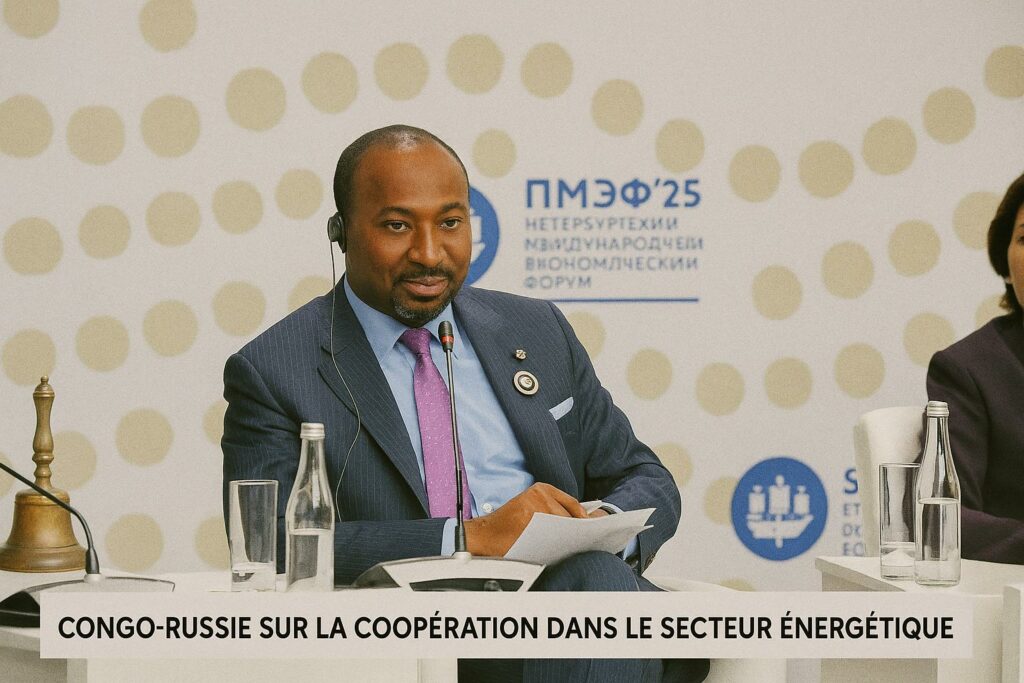A handshake at Saint-Petersburg echoes along the Congo River
When President Denis Sassou Nguesso strode into the 2023 Russia–Africa Summit in Saint-Petersburg, few doubted that hydrocarbons would dominate his private exchanges with President Vladimir Putin. Yet the swiftness with which both leaders announced an enlarged energy roadmap startled even seasoned Kremlin watchers. According to Kremlin readouts and Congolese state media, the two sides agreed to advance joint ventures covering offshore crude, liquefied natural gas and civilian nuclear technology (RIA Novosti, July 2023).
Oil blocks and sanctions: a marriage of convenience
Russian majors, hemmed in by Western sanctions, are scouting for politically congenial acreage to offset shrinking access to technology and capital. Congo’s offshore Marine XII block, where Lukoil already holds a 25 percent share, is an obvious beneficiary. Industry insiders in Pointe-Noire confirm that Lukoil technicians have revisited seismic surveys with the aim of doubling output to 140,000 barrels per day by 2027, pending regulatory clearance. Brazzaville, for its part, seeks to reverse a decade of erratic production and dwindling foreign direct investment, which fell by almost 15 percent in 2022 according to the Banque des États de l’Afrique centrale.
Gas ambitions: LNG terminals in the shadow of climate pledges
The memorandum initialled by Gazprom and the Congolese Hydrocarbons Ministry outlines a floating LNG facility near the Djeno terminal. Government officials predict a first-phase capacity of 2 million tonnes per annum, modest by Gulf standards yet transformative for a nation whose domestic demand barely tops 20,000 barrels of oil equivalent per day. Critics within the African Climate Foundation question the wisdom of locking Congo into a carbon-intensive trajectory precisely as European partners are dangling green-bond financing for renewable corridors. The Sassou Nguesso administration counters that gas exports will bankroll solar micro-grids inland, calling the criticism ‘ideological purism divorced from fiscal realities’.
Rosatom’s reactor offer: promise or peril?
Rosatom’s proposal to construct a small modular reactor on the outskirts of Brazzaville features prominently in the communiqués. While the International Atomic Energy Agency confirms that feasibility missions have begun, Congolese nuclear regulators remain embryonic, staffed by fewer than 30 engineers. Civil society groups, recalling the country’s troubled record of industrial safety, fear a replication of Niger’s uranium legacy. Rosatom executives insist that the reactor would adhere to Generation III+ safety protocols, citing recent deployments in Egypt and Bangladesh as proof of concept (Interfax, February 2024).
Debt, dollars and diplomatic signalling
Behind the technical jargon lies a straightforward geopolitical calculus. Brazzaville still owes roughly 40 percent of its GDP in external debt, much of it to Chinese lenders. Diversifying toward Russian credit lines not only mitigates overreliance on Beijing but also garners political capital in Moscow. For the Kremlin, headline-grabbing African deals buttress its narrative of resilience and global outreach, a counter-story to Western attempts at isolation. As one senior European diplomat observed in private, ‘Every rig or reactor Russia finances in Africa is a press release as much as a project.’
An uneasy convergence of interests
History counsels caution. Previous Russian forays into Central African hydrocarbons, notably in the Central African Republic’s Diamant-Berim fields, stalled amid security volatility and logistical overreach. Congo’s relative stability and Atlantic frontage offer better odds, yet infrastructural bottlenecks and opaque governance pose unmistakable risks. Transparency International still ranks Congo 162nd out of 180 on its Corruption Perceptions Index. Energy analysts in Johannesburg warn that without robust compliance frameworks, the partnership could degenerate into ‘petro-political theatre’.
Outlook: pragmatic symbiosis or strategic mirage?
Whether the Congo–Russia energy embrace yields material dividends will depend on financing terms, execution timelines and the vagaries of global demand. Should Brent crude languish below 70 dollars, the economics of deep-water expansion could unravel. Conversely, tightening EU sanctions on Russian exports might redirect more Russian crude-blending operations to Congolese ports, inadvertently boosting Brazzaville’s toll revenues. In the nuclear domain, regulatory maturation will be the decisive variable. For now, both capitals appear content with the symbolism of signed memoranda, each extracting diplomatic leverage while engineers crunch numbers behind the curtain.

